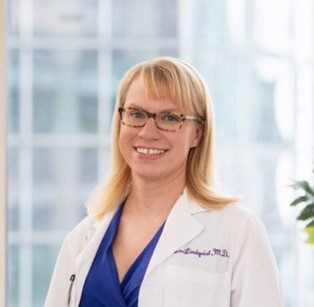Division of Geriatrics

We embrace the importance of quality of life — a sense of satisfaction, meaningful activity and the ability to express values and enjoy relationships — as an integral component of healthcare for older adults.”
Chief, Division of Geriatrics
About Our Division
The Division of Geriatrics at Northwestern University Feinberg School of Medicine is a nationally recognized leader in geriatric care, research and education. Ranked 11th of Geriatrics Programs nationally and second in Illinois by U.S. News and World Report, we are committed to innovating the field of geriatrics and providing comprehensive care for seniors. Our division offers a wide range of services, from home care and telehealth to inpatient services and long-term care, serving urban and suburban communities.
As home to a prestigious Claude D. Pepper Older American Independence Center and a key player in the Potocsnak Longevity Institute's GeroScience Academy, we are at the forefront of aging research and geroscience education. Our accomplishments include leadership in clinical care for successful aging and cancer survivorship in seniors, a top-ranked geriatric medicine fellowship program and innovative initiatives to improve the quality of life for older adults. Across our division, we are dedicated to advancing the science of aging and providing exceptional care to help seniors age well.
Education
Faculty members in the Division of Geriatrics play a major role in teaching medical students at the Feinberg School of Medicine and residents in the Department of Medicine. In addition, our faculty teach within the Center for Education in Health Sciences training programs.
Research
The Division of Geriatrics faculty include innovative scientists who have established programs in investigation across a wide range of topics, including improving the uptake of preventative health behaviors, exploring how electronic health record data can be used to improve health outcomes and performing outcomes research in social determinants of health. To learn more, view our clinical trials.
Contact Us
We welcome your questions and comments at the Division of Geriatrics at Northwestern University Feinberg School of Medicine. Please contact our administrative office via the information below.
Division of Geriatrics
750 N. Lake Shore Dr., Floor 10
Chicago, IL 60611
Phone: 312-503-6400
Fax: 312-503-2755
Division Administrator
Christine Kelly Toman
chrissy.kelly@northwestern.edu
Giving
We invite your philanthropic partnership in helping us achieve our research and teaching missions each day. Contact MaryPat Mauro for more information on supporting the Division of Geriatrics at 312-503-1090 or marypat.mauro@northwestern.edu.